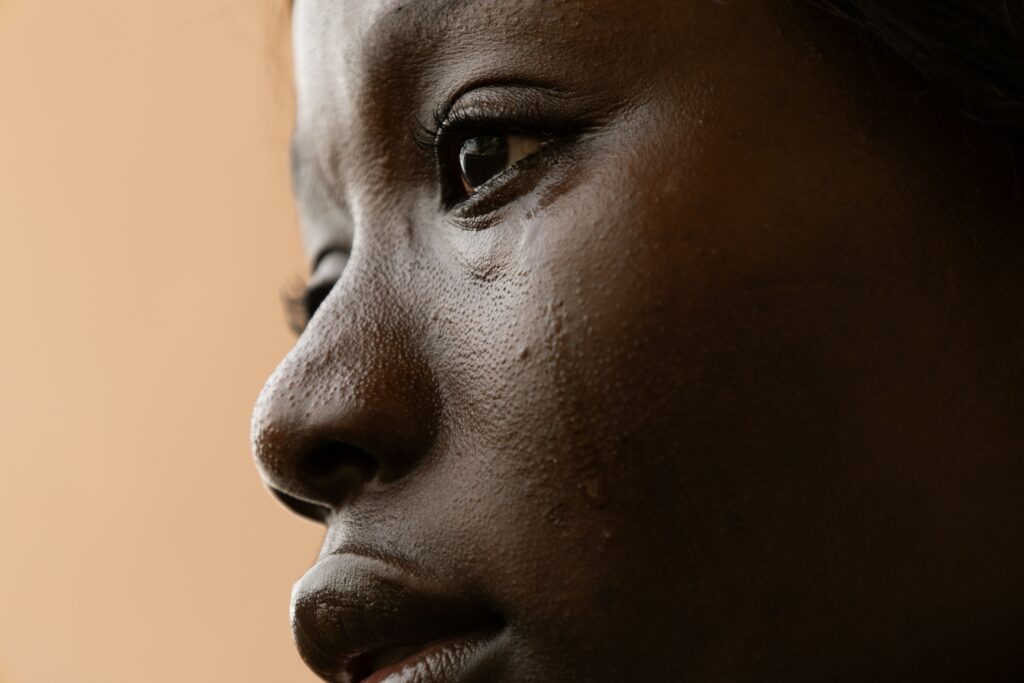In this opinion piece, freelance writer and human rights activist Livhuwani Malelelo discusses how, despite existing laws against gender-based violence, femicide continues to rise across Africa. Weak enforcement, political inaction, and deeply rooted cultural norms continue to endanger women’s lives.
✍🏾 Livhuwani Malelelo
Karabo Mokoena, Augusta Oseodion Onuwabhagbe, Rebecca Cheptegei — these are names that have made headlines in the last few years, in African and international news, not for their ambitions, not for the amazing lives they lived, not for their achievements nor for their dreams, but for the violence that took their lives, the violence committed by the people they trusted the most, their partners. And they are not the only ones.
Intimate Partner Violence (IPV), as defined by the World Health Organisation (WHO), is the “behaviour within an intimate relationship that causes physical, sexual or psychological harm, including acts of physical aggression, sexual coercion, psychological abuse and controlling behaviours”. With the United Nations reporting that, in 2023, the African continent had the highest rate of intimate partner violence and femicide, resulting in 21,700 women’s lives lost, it is evident that Intimate Partner Violence is leading the Gender-Based Violence and Femicide (GBVF) rates on the continent.

Upheld by misogynistic values, the foundations of Intimate Partner Violence can be traced back to the belief, amongst other things, that in relationships, women are meant to be subservient to the men they are partnered with. Therefore, these women should follow orders from their male partners with little to no hesitation, and if that is not the case, then the men can punish them in any way they like, often with violence.
With such beliefs widely shared among their communities, it becomes almost impossible to dismantle them, especially as Intimate Partner Violence “evolves and gets embedded in the social fabrics of any society and perpetuates its practice as a norm based on precedent”.
Dismantling such patriarchal foundations is not the only challenge that arises while attempting to combat Intimate Partner Violence; the process of attaining justice in such cases has also proven to be difficult for victims of such violence and Gender- Based violence in general.
Upheld by misogynistic values, the foundations of Intimate Partner Violence can be traced back to the belief, amongst other things, that in relationships, women are meant to be subservient to the men they are partnered with.
Why African Women Keep Dying Despite Gender-Based Violence Laws
Although Nigeria has laws enacted and put in place to protect women, such as the Criminal Code Act, Chapter 77; Laws of the Federation of Nigeria 1990; as well as the Violence Against Persons (Prohibition) Act, 2015; the Penal Code Act 1960 and more, the country has an imbalance that leaves complainants and citizens beyond frustrated. For example, in 2020, from the month of January to May, the Nigerian police recorded 717 rape cases, but only 631 cases were charged, and out of those, only 52 were then proceeded to be investigated.
Not only does this hinder justice in the country, but it also makes it hard for those recording GBVF cases —a point stressed by the Femicide Observatory, a project created by a Lagos-based non-profit organisation, Document Our History (DOHS) Cares Foundation.
The DOHS further added that the figures presented by civil society organisations seem to represent only a sample size of the violence women and girls are facing, and this is due to the inaccurate documentation of such cases, as well as the distrust between complainants and the authorities.

From West Africa to the southern parts of the continent, the fight against GBVF seems to be a losing battle, with the same challenges arising in different regions. Even though these countries have laws established to protect women and girls, the poor implementation of such laws leaves citizens unprotected and therefore discouraged, seeing that their governments’ inaction fails to provide the needed justice.
This is definitely the case in South Africa. In 2023, in response to the high rates of violence against women and children, the government passed the Gender-Based Violence and Femicide Bill. Signed in May 2024, the government considered this a “landmark piece of legislation” in its efforts to protect women and children from violence.
Whatever hopes South African citizens had in this bill quickly vanished when the former Minister of Social Development, Lindiwe Zulu, was found to have used 100 million rands meant for GBV survivors for her own personal use.
From West Africa to the southern parts of the continent, the fight against GBVF seems to be a losing battle, with the same challenges arising in different regions.
Again, in early 2025, Justice and Constitutional Development Minister Mmamoloko Kubayi announced that the National Register of Sex Offenders (NRSO) would be made public this year, which would ensure that South Africans are aware of the sex offenders living among them and therefore, allow them to take precautionary measures to protect themselves and their children. However, this would not be the case, as the department has since suspended plans to publish the register, citing concerns about infringing on the offenders’ privacy rights.
Regardless of the government’s efforts to combat GBVF through the enactment of such laws, these efforts fail utterly if they are not followed through with implementation. Although we have such laws, GBVF rates have been skyrocketing over the years, meaning no progress is being made, just more lives lost.




